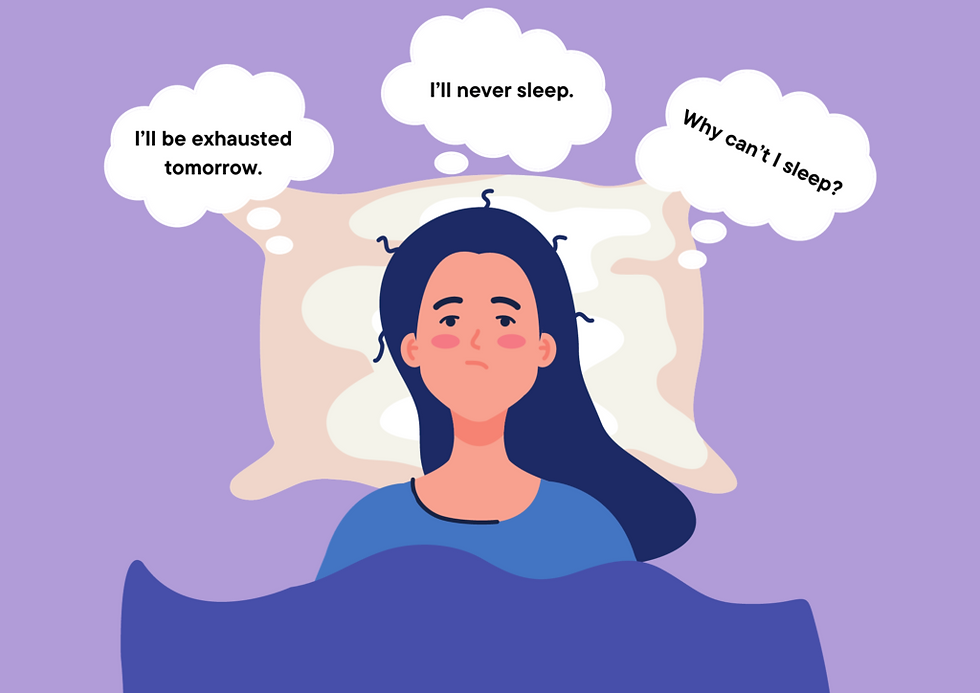Interview with Dr. Marla Feller (Humans of Neuroscience)
- Dec 31, 2022
- 3 min read

Dr. Marla Feller, Ph.D., is the Paul Licht Distinguished Professor in Biological Sciences and member of the Helen Wills Neuroscience Institute at the University of California, Berkeley. Feller currently issues postdoctoral positions for her lab, in which she and her team study the development of neural circuits in the retina. Learn more about her journey below!
How did you discover your interest in the brain, and when was that?
I received my Ph.D. in physics, using optical methods for studying surfaces. I did not discover biology until I was a postdoctoral researcher at Bell Laboratories.
Did you have a role model that influenced your decision to work in STEM?
My love for physics was inspired by a high school teacher. The regular teacher was on sabbatical, and so I believe the substitute teacher was a graduate student who was taking a year off.
Have you experienced any barriers or obstacles in your neuroscience and/or psychology journey?
I don’t think so. The greatest barriers have been in designing experiments that will somehow allow nature to yield its secrets to us.

What are your biggest achievements, and what are your biggest failures?
I still think one of my biggest achievements was actually getting a Ph.D. in physics. The second was receiving tenure as a neurobiologist at the University of California. I still have to pinch myself when I say it.
I am not sure this is a failure, but my biggest challenge has been to overcome imposter syndrome. I am one of very few in my family to complete college and the first to pursue a postgraduate degree. I entered a world where I didn’t understand the rules and therefore assumed I didn’t belong. In retrospect, I had fantastic mentors along the way and was surrounded by encouraging colleagues. It was my internal voice that was keeping me down.
How does neuroscience and/or psychology impact your everyday life?
We all use our brain all the time. Having some sense that there is chemistry and electricity underlying our everyday experiences sometimes feels like magic.
What lessons or values have neuroscience and/or psychology taught you?
Probably the biggest lesson I have learned is that variance is inherent to the system. It seems every cell we record from is different from every other cell, despite knowing that the cells are genetically identical and that we are using the same stimulus. It can be challenging to determine the signal from noise when trying to understand the nervous system.
What are the hardest parts of your work?
The hardest thing about neurobiology research to me is not knowing whether you have done the experiment correctly. This is a big difference with physics. In physics, you often know you have done the experiment correctly because your data will match what you expect, governed by the laws of nature. In biology, you repeat what you think is the same experiment over and over and see if you can get consistent results. It is a very different way of doing science.
Why is neuroscience and/or psychology outreach, or STEM outreach in general, important to you?
As noted above, I felt handicapped by imposter syndrome—particularly in physics where it is easy to believe everyone is smarter than you. Neuroscience is a field that benefits from diverse approaches—including physiology, computer science, genetics, molecular biology, statistics, physics, and chemistry. I have found this diversity of approaches and backgrounds to be a welcoming atmosphere. If we can just get people into the lab, they too can bring their talents to these scientific challenges in understanding neurons and the brain.
Do you have any thoughts you would like to share with younger generations of students interested in the brain?
There is no single path that is more successful than any other path. Pursue what you find interesting, be open to opportunities, don’t fear being wrong, and don’t quit before you have to.
Please note that this interview was conducted in 2019. We have recently reformatted and made minor clarity edits to publish on the Simply Neuroscience Blog!




Comments